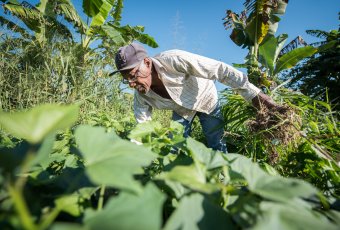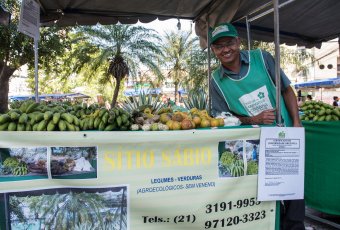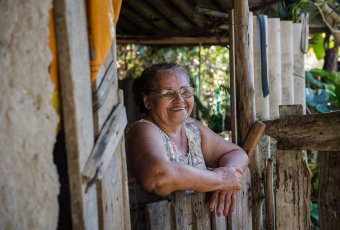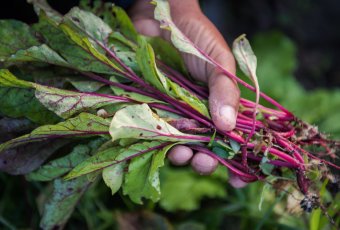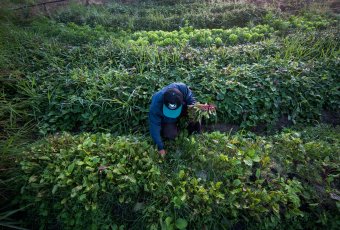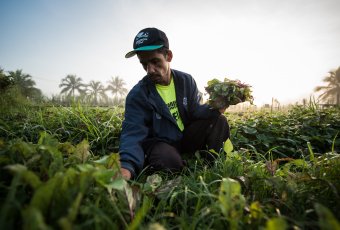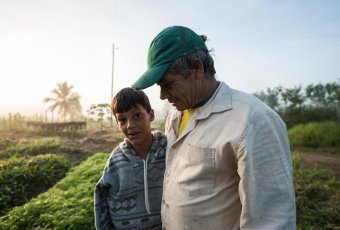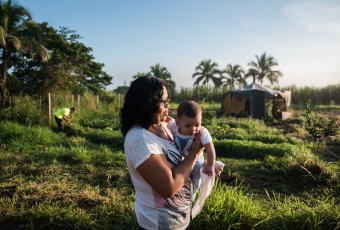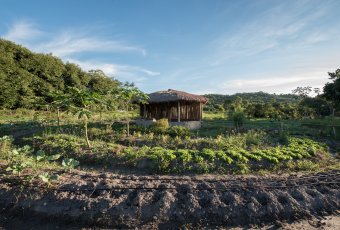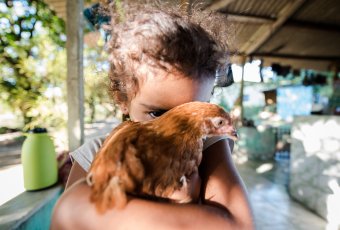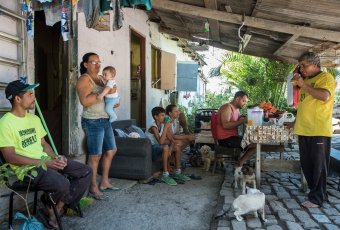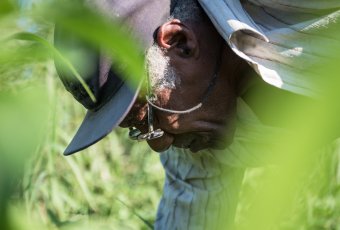The context
In 2050, more than 65% of the world population will live in cities. Yet, cities depend on their rural landscapes for food and water. At the same time, rural agriculture needs urban demand to prosper. This is a fragile balance. Rio de Janeiro is one the world’s largest megacities with over 12 million inhabitants. The mountain ridge of Tinguá, at around 60 km upstream of Rio de Janeiro, is one of its key water catchments. Nevertheless, people living in this rural area are among the poorest of Rio de Janeiro, with little to no know-how in agriculture. They are slowly abandoning farming to find a job in the city. Idle rural land in the proximity of a sprawling city makes the area at risk of mass tourism, real estate programmes and industrial activities which could exert pressure on water resources in Tinguá on the long run.
The project
The project is supported by Bonafont, a Danone brand which operates a mineral water factory in Tinguá (60 km from Rio), and the Sebrae (the Brazilian SMEs development agency). It will enable smallholder farmers located in Tinguá, one of the key water catchments of Rio, to adopt a 100% chemical-free agriculture to preserve the watershed.
Around 250 family farms will receive an agroecology initiation kit designed by SEBRAE and already adopted by other farmers across Brazil. This kit consists of equipment for a plot of 5,000 m2, including seeds, irrigation pipes, chicken coops, chickens, and a water tank with a solar powered pump. It will boost chemical-free productivity thanks to drip irrigation, optimized working conditions and synergies between plants and poultry. Moreover, farmers will receive 30 months of training in sustainable agricultural practices, farm management and sales to help them become professional organic farmers. Farmers will learn how to connect to local markets, restaurants and supermarkets in Rio to ensure stable revenues over time. The project will also create a solidarity mechanism, allowing farmers who have benefited from the program to support training for others.
This project, with an investment of 1,3 million € by the Livelihoods Fund for Family Farming, is built on an innovative model. The Livelihoods Fund co-designed the project and bears the investment risk. Bonafont will pay a fee to the fund based on the number of hectares conserved, to ensure that the project has tangible results. SEBRAE co-invests in the project and implements it in the field. .
The social, environmental and economic impact
The project will foster the transition of the largest number of farms located around Bonafont’s factory to organic farming for the long-term preservation of water resources. This will result in the creation of the largest organic food production hub in Rio de Janeiro, where there is a rising demand for healthy food. Farmers’ revenues are expected to rise by up to 60%, matching or even outweighing a city job salary.
The project will therefore benefit all parties: improved revenues for farmers on the long run; the sustainability of Bonafont’s activity; healthy food and preserved water resources for the people in and around Rio.



